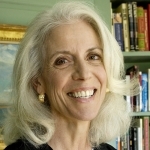 (HOST) Taking responsibility for one’s health has many facets, not the least of which is having an Advance Directive for Healthcare. Commentator Susan Cooke Kittredge has led workshops in helping people with these documents but was surprised at how much she learned when she acted as her mother’s agent at the end of her life.
(HOST) Taking responsibility for one’s health has many facets, not the least of which is having an Advance Directive for Healthcare. Commentator Susan Cooke Kittredge has led workshops in helping people with these documents but was surprised at how much she learned when she acted as her mother’s agent at the end of her life.
(KITTREDGE) Most people don’t like insurance because it’s expensive and the only way to win is to lose. It also seems sort of pessimistic, a glass half-empty way to live. But having an Advance Directive for Healthcare is insurance of a very different sort. It too is protection against something going wrong, but it costs nothing; its only premium is a willingness to communicate with those you love.
The most important part of an Advance Directive is the designation of an agent, someone who will speak for you when, for whatever reason, you can no longer speak for yourself.
Having an Advance Directive is vital because making decisions about medical care can be daunting. Things can snowball quickly; choices can be made that seem simple but may have serious consequences.
My grandmother died in 1968. When I asked my mother the cause of her death, she said, "Pain. There was nothing wrong with her, but the doctors wouldn’t give her medication for fear she’d become addicted." From that moment on I promised my mother that I would not let her suffer.
I was her health care agent, and, having worked in ministry with hospice teams for 25 years, I thought I knew what lay ahead. She wanted no "heroic measures." For the last eight years of her life, she insisted that she didn’t want to go to the hospital, didn’t want antibiotics if she got pneumonia. She was ready to die.
She became frail, had COPD, degenerative arthritis and intestinal issues that were demeaning and painful. She also became increasingly senile and lost the ability to see her situation objectively. With excellent care she was being held together, propped up, encouraged to eat, get dressed, participate in life – but it was getting harder every day.
The turning point came for me one evening after an exhausting day in the Emergency Room. Back home I brought her some dinner, and like a good girl, she picked up her fork and tried to jab a piece of pasta but was clearly not up to the task. And without really thinking I said, "Mum, you don’t have to eat that."
Opening her eyes wide, she said, "I don’t?"
"No," I replied, "From now on you don’t need to do anything you don’t want to do."
She smiled, clapped her hands together in triumph and said, "Thank you!"
Finally, I understood what she wanted.
From that moment on she was the boss, and together we let her body guide us. This was not a conscious decision on her part – she was no longer capable of that; but she was happy and relieved to be charting her own course, though, ironically, the decision had been mine.
Since her death, I do wonder sometimes if I did the right thing. Being her agent was an honor but more challenging than I anticipated. Standing up for grace and autonomy in dire situations is never easy. My reassurance comes from knowing that this is what she wanted, if only she could have known.